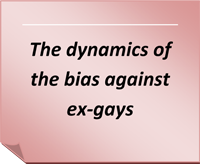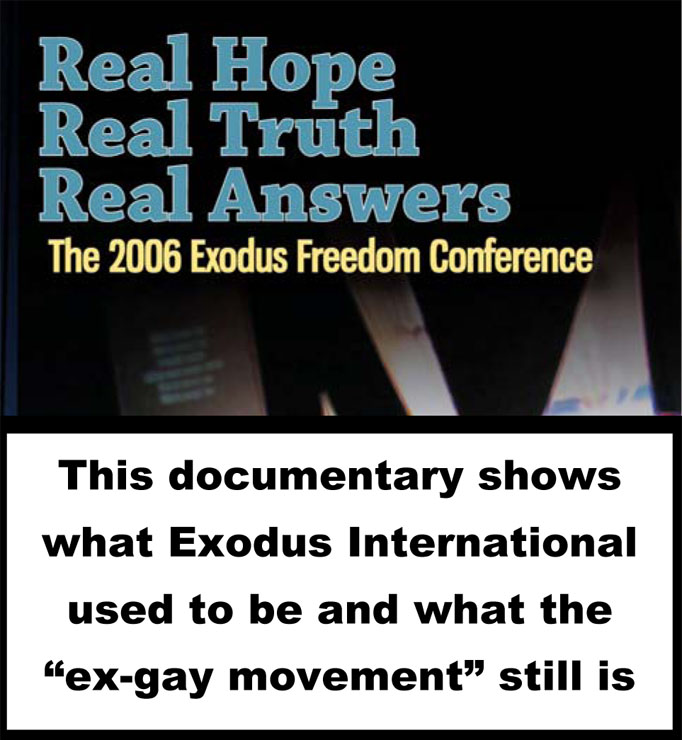Theologian Robert Gagnon criticizes the argument that biblically homosexuality is no worse than gluttony
July 19, 2012
Dr. Robert Gagnon responded to an article by Craig Gross that argued homosexuality was not any worse a biblical sin than gluttony. The following excerpts are from Gagnon’s article “It’s Silly to Compare Homosexual Practice to Gluttony.”
“When Gross erroneously concludes from 1 Cor 6:13 that gluttony and homosexual practice are comparable sins, he means not that gluttony is as bad as homosexual practice but rather that homosexual practice is no worse than gluttony. Gross asks, ‘Why is one [gluttony] accepted and one [sexual immorality] rejected? … Why do they believe that the gay guy goes to hell but the fat preacher who builds some of the largest churches in the world makes it to heaven?’”
“Gross’s questions are easy to answer: The reason is that serial-unrepentant sexual immorality of an egregious sort is much more of an indication of a life controlled by sin than is the act of overeating. Even Gross must know this. Take his example at the end of his paragraph. His church leaves out ‘doughnuts to eat during worship service’ (we’ll leave aside the oddity of eating during a worship service). Eating doughnuts can bring on weight gain while providing no nutrition (but they are delicious; in fact, I’m having a hankering for some right now). Does Gross really regard this accommodation by his church as comparable to setting aside rooms in the church where people can go to commit fornication, sex with prostitutes, adultery, three-way sex, incest, homosexual practice, pedophilia, and bestiality? If he did, he would be perverse. And, for the record, eating several doughnuts in a single venue is not a sin.”
“Gross adds:
‘Homosexual activity and overeating are both sins – just like speeding, gossip, lying and cheating. I think I did all of those just today. All are forgivable in Christ and, with the leading of the Holy Spirit, can be changed. Just remember that change does not happen overnight.’”
“Did you catch Gross’s sleight of hand? He compared homosexual practice with a series of what most regard as relatively minor offenses, at least potentially (though if Gross did all of them in one day he should probably ‘up his game’ a bit and take these matters a tad more seriously). Imagine instead if he had said the following:”
“Homosexual practice and overeating are both sins—just like committing adultery (not just of the heart), being in a consensual sexual relationship with one’s mother, raping women and children, cutting open people’s bodies while they are still alive and dumping them in the river, and robbing banks and kidnapping at gunpoint. I think I did all of those today. All are forgivable in Christ and, with the leading of the Holy Spirit, can be changed. Just remember that change does not happen overnight.”
“Most people would react to such a comparison with a deep sense of moral outrage, not least of all people like Gross who contend that all sin is equal. How dare you compare homosexual practice to truly heinous offenses, Dr. Gagnon! And then they would have made my point. No one really believes that all sin is equally heinous. And if a member of Gross’s church were involved in any of these serious offenses, I would wager (if I were a betting man!) that not even Gross would retain the caveat, ‘just remember that change does not happen overnight.’ No, that incest, rape, murder, etc., better stop today.”
“Any sin can get one excluded from God’s kingdom if one thinks that one can earn salvation through personal merit or make do without Jesus’ amends-making death and life-giving resurrection. Yet that doesn’t mean that all sin is equally offensive to God in all respects. Put differently, Christ’s universal coverage of sin through his death on the cross does not mean that all sins are equal in all respects but only that all sins are equal in one respect: They are all covered. By way of analogy, one may have health coverage for all injuries great and small and pay the same amount for the coverage regardless of the injury; but that doesn’t mean that no one injury is more severe than any other injury.”
“The Bible is clear that some sins are worse than others. Jesus clearly spoke about greater and lesser commandments (Matt 5:19; Mark 12:28-31), weightier matters of the law (Matt 23:23), some people loving more because they were forgiven more (Luke 7:36-50), and a blasphemy against the Spirit that could not be forgiven (Mark 3:28-30). This is in keeping with different grades of punishment for different sins in the Old Testament (including different tiers of sexual offenses in Lev 20) as well as references to the “great sin” of the Golden Calf episode (Exod 32:30) and “greater abominations” (Ezekiel 8:6, 13, 15). Paul obviously treats a case of incest at Corinth as a particularly great offense (1 Cor 5) and speaks of different degrees of wrong actions meriting different penalties (1 Cor 3:10-17).”
The full text of this essay can be found at http://www.robgagnon.net/GluttonyComparisonToHomosexualPractice.htm.




